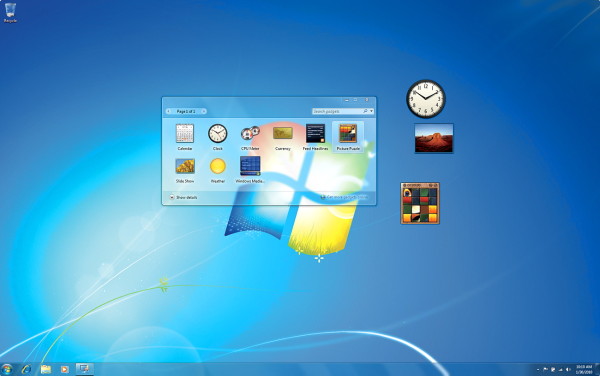by Kurtis Doering
The University of Regina plans to replace all of its computers with those compatible with Windows 7 beginning in the spring of 2010.
According to the U of R’s desktop support supervisor Terry Meachem, each of the university’s 1200 to 1500 computers will be running Microsoft’s new operating system within four years.
“If you want to stay current, or if you want to be able to buy newer software, then you have to be able to have the operating system to support it,” said Meachem.
The U of R replaces its computers on a four year rotating basis through the Evergreen Equipment Program.
“All the new ones coming in will be Windows 7,” said Meachem.
The vast majority of computers currently on campus run the Windows XPProfessional operating system. There are no plans to install Windows 7 on computers currently running XP, though a few people on campus may choose to do so independently.
The primary driver for this gradual changeover is Microsoft’s plan to officially cut all security support for Windows XP in April 2014.
“We don’t really have a choice” Meachem said.
Art Exner, director of communication infrastructure for the U of R, calls the withdrawal of XP support by Microsoft “a watershed event for a lot of organizations, the university included.”
He adds that his department has “been running (Windows 7) on a few systems for a number of months now, through late beta stages from Microsoft,” and that their experiences have been “generally positive”.
The Windows 7 launch represents a make-or-break moment for Microsoft. Windows Vista, the company’s last operating system released in January 2007, was infamously unsuccessful.
Like most businesses, the U of R did not upgrade their computer systems to Vista.
“There were just too many problems with it… and by the time that all the problems got ironed out, Windows 7 was on the horizon.” Meachem said.
Exner says that Vista also suffered from compatibility issues, an intrusive security model, and over-ambitious hardware demands.
“There wasn’t anything really compelling from a business or productivity point of view,” he said.
Michael Silver, an analyst with the information technology research company Gartner, writes that Windows 7 is Microsoft’s most important release of Windows ever.
“A second consecutive bad outing for Microsoft would probably be enough to shake the confidence of the market and could potentially lead to the decline of the company” he wrote in the company’s blog.
As such, Microsoft took great pains in developing the beta version of Windows 7, releasing free copies to the general public. Since its release, the program has generated positive media reviews.
Some of the things Windows 7 boasts are faster desktop navigation, a less intrusive security system, and the ability to watch and record TV on your desktop.
Microsoft commands a giant portion of the computer industry compared to its chief competitor, Apple. PC operating system-compatible units represent about 90 per cent of the market, further increasing the pressure for this new operating system be successful.


